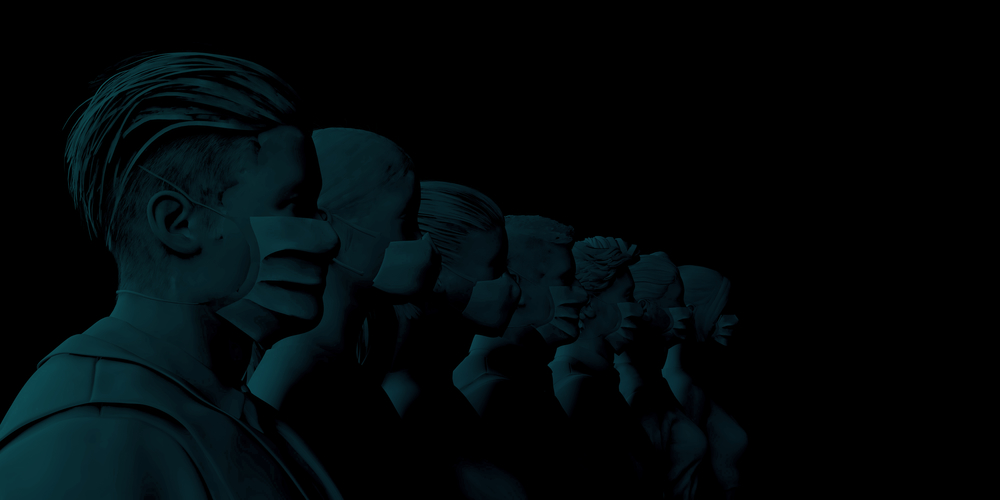On “Persuasion” (the newsletter-think tank launched by Yascha Mounk after the Harper Letter) there is an excerpt of Ivan Krastev’s forthcoming book, Is it Tomorrow Yet? Paradoxes of the Pandemic. Krastev struggles with the impact of the pandemic of different political regimes.

His starting point is that “more than any other crisis, a public-health emergency can induce people voluntarily to accept restrictions on their liberties in the hope of improving their personal security. Invasive surveillance systems and bans on freedom of assembly have been introduced and accepted around the world with little public pushback.” It seems we should think that these kinds of crises are healthy for authoritarian leaders, who thrive on fear.
Yet Krastev points out that such authoritarian leaders typically are “problem solvers”, but of problems of their making (up).
As a seemingly unstoppable crisis that has riveted the attention of the global public, Covid-19 deprives authoritarian and authoritarian-minded leaders of the chance to manufacture a “better crisis.” Far from citing the coronavirus crisis to justify an increase in power, a high-profile slew of populists and autocrats have strenuously and ridiculously denied the very existence of the pandemic. …
Political leaders in general prefer “enemies” who can unconditionally surrender to anonymous “threats” that need to be managed over time. Would-be dictators, in particular, find it more rewarding to pose as “deciders” than to do the hard work required of “problem-solvers.” The former allows them to vaunt their I-alone-can-solve-it unilateralism, while the latter requires them to cooperate with others, to freely admit their own mistakes, and to spend the time needed to master complex and evolving situations. Flashy stunts by men-of-action must give way to slow and laborious efforts by anonymous professionals.
It is not only that authoritarian leaders despise crises that they do not freely choose and which require them to stake their prestige on cooperatively resolving problems that, at the outset, are difficult to understand. They also spurn “exceptional situations” that compel them to respond with standardized rules and protocols rather than with ad hoc, discretionary moves. Mundane behaviors such as social distancing, self-isolation and washing hands are the best way to stop the spread of the disease. The leader’s strokes of genius, inviting thunderous applause, are perfectly irrelevant. Worse still, the palpable courage of ICU doctors and nurses makes phony heroics in presidential palaces appear even more pathologically narcissistic than before.
Another point Krastev makes is that the global nature of the crisis, “the ubiquity of the disease”, “makes it possible for people to compare the actions of their own governments with the actions of other governments around the world. Success or failure at flattening the curve provides a common metric, making cross-national comparisons possible and putting strong pressure on governments that had previously succeeded in insulating themselves from public criticism. The opening provided by easy government-to-government comparisons gives citizens the capacity to grade their government’s performance. This is a problem for authoritarian regimes and authoritarian-minded leaders, who previously got away with staged “performances” supplemented by the silencing of whistle-blowers and critics.
The whole thing is well worth reading, and I look forward to the book. What Krastev writes about authoritarian regimes is, in fact, a problem for political leaders in democracies, too: perhaps spectacular decisions in tackling the epidemic (the kind that politicians tend to favor) are not as effective and important as leaders believe. Perhaps containing the virus is an exercise in self-governance that some people are more adept at conducting than others, because of their history and their institutions. Krastev rightly points out that it is too early to say: success and failure in dealing with Covid-19 will be properly assessed years from now. I look forward to his books to see how he develops these views presented in the “Persuasion” excerpt.


READER COMMENTS
Thomas Hutcheson
Oct 27 2020 at 10:20am
Dealing with Covid 19 should not be different in principle to any other policy problem in which individually self-interested rational decisions made with partial information do not sum to the socially optimal result. This is not to say that collective decision-making is necessarily better. It behooves those who appreciate the many ways in which collective as well as individual decision-making can fail to be part of the public discussion of specific issues in offering optimal or less bad policy options.
Comments are closed.